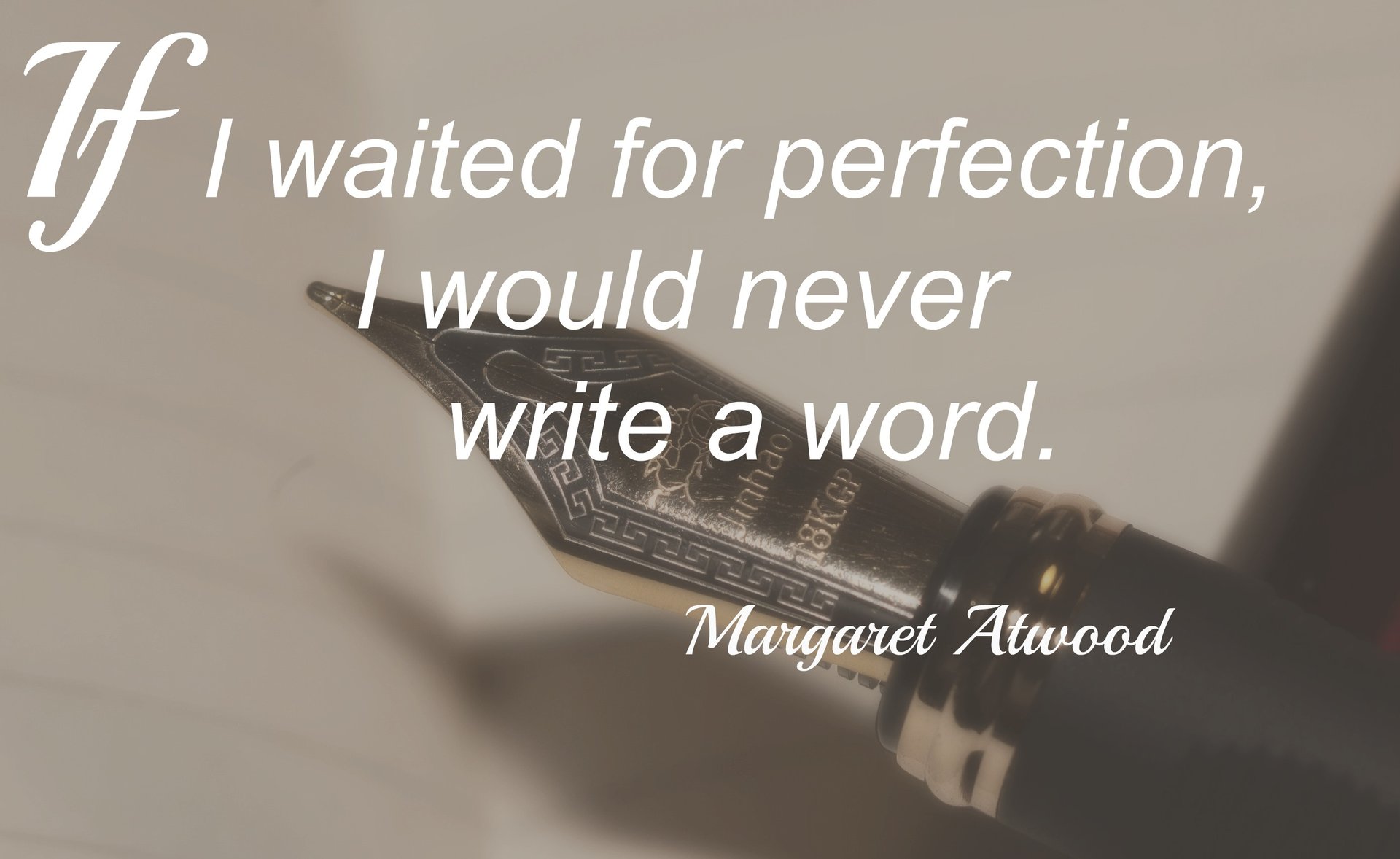

If you’re struggling to find inspiration to write, the chances are you’re going about it the wrong way and I bet I can guess how.
Could it be that you are waiting for a brilliant idea to materialize prior to committing to the keyboard?
I mean as a prolific planner I get it; it makes total sense. Or does it?
As Figment says, one little spark is all it takes.
If you’ve read any of my other blogs, you’ll already know one of my favorite writing mantras is, protect the process, and in order to do this you have to jump feet first into writing, whether you have an idea percolating or not.
Let me explain with an example.
When I started to create an online author presence, I learned very quickly that just one page or account on a social media platform was not going to cut it. Time and time again all research kept circling back to consistent content. Most recommended being in the form of a blog.
The thought was daunting to say the least. I’m not one to shy away from a challenge, but how on earth are you supposed to complete a task when you are completely blind to what said task is supposed to consist of? I didn’t read blogs. I had no idea where to even start my search for industry specific related blogs let alone start my own.
Blogs aren’t fiction (at least I don’t think they are). I had no idea how I was going to come up with a weekly topic to write a thousand words on. I mulled over it for a few days, spent hours researching, and still had nothing, until I sat down and started to write a list.
Logic dictated I start at the beginning. So, my first blog was an introduction for me and my first book. It simply detailed the circumstances around how and why in my mid-forties I came to try something brand new. I was convinced I wouldn’t get to any more than a couple of hundred words, but once I started the creative juices began to flow and before I left my desk that afternoon, I had a 1200-word draft along with titles for the next five blogs.
Fiction writing is no different. Once you remove the pressure of believing that every writing session has to yield a print worthy piece and just make an executive decision that for one hour you are going to sit down and write, regardless of the topic, chances are you will surprise yourself.
But what if you still don’t have that magical spark or tiny seed to start from? Where do you look to find it?
Real life (and I’m not necessarily talking about the wider world or major newsworthy events; I’m talking about the normal day-to-day life of those around you) can provide the seed for something great. Simply getting out there and observing is quite the eyeopener sometimes. In the greater Orlando area, driving up or down the I4 is guaranteed to throw your imagination into the beginnings of an epic disaster movie…. or a driver’s psychological break, depending upon the time of day.
Chances are you have a plethora of ideas sitting right below the surface, you just haven’t yet mastered how to access them.
Tiny key moments that have stuck with you from the past, a childhood memory, high school gossip, a defining moment in your life, a close call, a special event or even an embarrassing moment can act as a starting block.
Books you’ve read, movies you’ve watched, historical events, and places you’ve visited can lead you down a path of possibilities. And if you’re looking for a quick shot of inspiration, reading back cover book blurbs or watching movie trailers are great and minimally time consuming. Even social media platforms like Tik Tok can spark an idea, although the danger of disappearing down a rabbit hole with that is high.
Podcasts are also a fantastic option. One of the best things about podcasts is that you can listen to them whilst completing other tasks. There are some amazing true crime ones if that’s your forte. Speaking of which, stepping outside of your comfort zone is also a must. Try listening, reading, or watching something completely new and different and see where that experience takes you.
One of my favorites inspo triggers is music. For each book I write I have a playlist. The list of songs typically start off quite small, but as my story develops my playlist grows. I even have certain songs that relate to specific chapters and it’s not uncommon for me to stick a song on repeat and play it as I write.
Learn something new. This really is a win, win situation. Even if it ultimately serves no purpose from a writing perspective, acquiring a new skill is always a positive.
Set yourself learning limits. The majority of the learning should come as you write. If you try to master everything you’ll ever need to know there will never be enough time left to actually write.
Enjoy the process. The only pressure you’re likely to be under is from yourself. If writing isn’t bringing you pleasure, there’s something wrong.
And when you’ve completed your hour, or whatever timeframe you set, take a break. Once you’ve emptied your glass your next task should focus on refilling it.
Remember, the only person stopping you is you. I’m signing off this week with one of my favorite inspirational quotes from the author of Coraline:
“You get ideas from daydreaming. You get ideas from being bored. You get ideas all the time. The only difference between writers and other people is we notice when we’re doing it.” Neil Gaiman